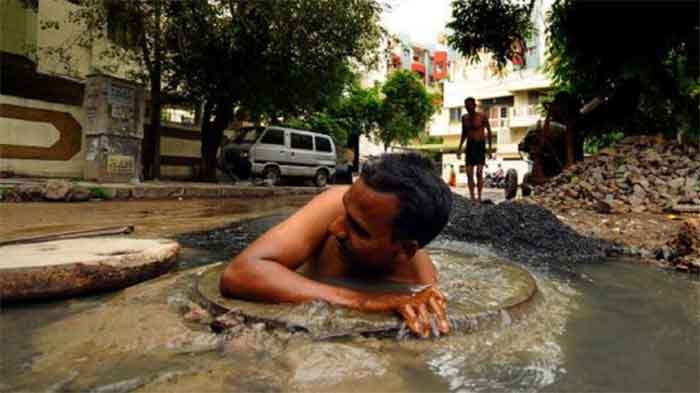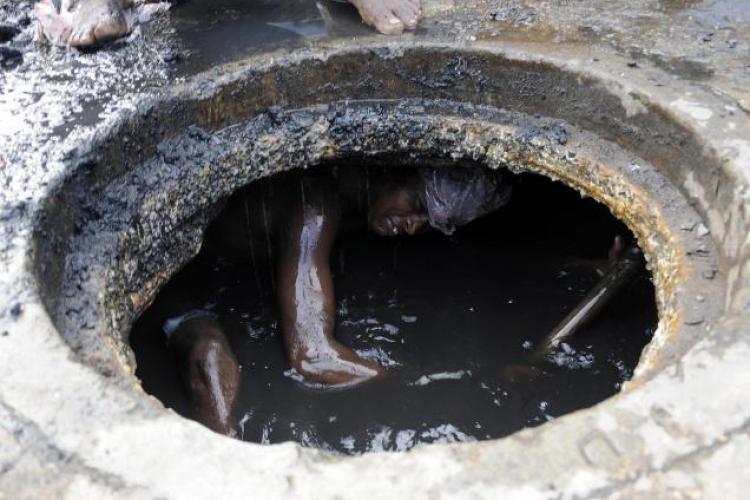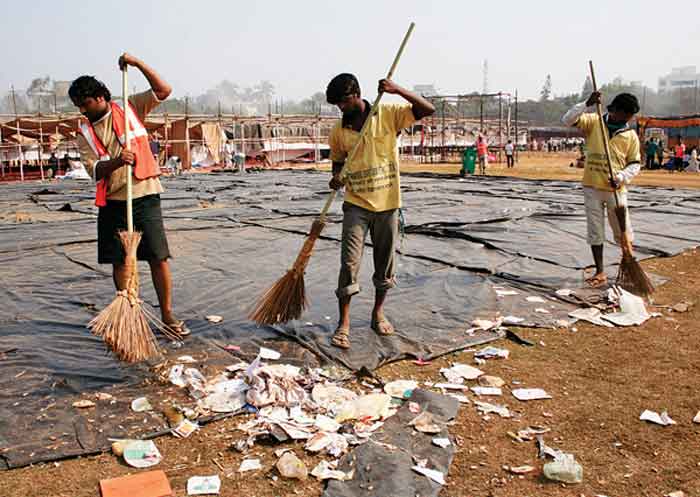
In no country, people are sent to gas chambers to die
–Hon’ble Supreme Court of India on manual scavenging
The Prohibition of Employment as Manual Scavengers and their Rehabilitation (Amendment) Bill, 2020 aims to bring stricter provisions for the safeguard of the manual scavengers in terms of compensation for sewer deaths, rehabilitation plans and provision of safety equipment at work. The irony is that the same has been guaranteed by the 1993 and 2013 versions of the Act but the situation of manual scavengers in the country does not seem to improve. The previous acts have been a complete failure, both at the policy and implementation level.
In 2014, Supreme Court laid emphasis on the adherence to the 2013 Act to protect the fundamental right of life with dignity for manual scavengers under the Article 21 of the Constitution. It compared the practice to genocidal violence.
As of 2020, it is estimated that more than 48,000 people are engaged in manual scavenging, of which 98 percent are women. Despite the law, they are employed on contractual basis, are not provided any protective gear and face denial & delay for any financial assistance regarding rehabilitation.
The life expectancy of a manual scavenger is less than 50 years, with 80 percent of these workers not reaching the retirement age as they die in sewers or due to fatal illnesses caused by direct contact with the excreta. Although there are no reliable official numbers on the number of deaths in sewers, it is estimated that more than 1,080 sanitation workers have lost their lives, of which majority are left to receive their compensation. The issue has risen to the violation of the human rights, more than a non-implemented Act.
There is denial from the Central and the State governments regarding the state of manual scavenging. Some states have even declared themselves not engaging in manual scavenging, others do not take any measures to implement the provisions of the Act. Indian Railways, the largest employer of manual scavengers in the country, has been employing them under the name of safai-karamcharis but forces them to clean human excreta from the tracks. The contractual form of employment allows the various authorities to evade the blame. This privatisation of the activity provides further scope of exploitation. Three to four people die at a time because these players force the people to land in the sewers, despite the assessment of the risk involved. This deliberate denial from various levels of authority has been attributed to the major social evil of ‘caste’.
Manual scavenging is attributed to only lower Dalit or ‘untouchable’ castes, formed by the Valmiki community. The community members are considered lower beings and regarded as unclean by birth. They live in separate parts of the locality with degraded facilities. Given sanitation a caste-based occupation, the next generation finds it difficult to move out of the vicious cycle. The proposed bill of 2020 is silent on the issue of caste and fails to provide relief for the historical injustice. The disadvantaged of the most disadvantageous section- women, form most of the workers. The caste acts as a stumbling block in solving the manual scavenging crisis which needs to be addressed.
Lack of rehabilitation programs and delay of compensation also forms a major factor for the unwilling participation of workers in manual scavenging. They face dearth of employment opportunities and continue to remain victims of social stigma. They are not included in any community activities and are not employed by any person. When trying to move out of the secluded part of the locality, the landlords refuse to rent their houses. In case of self-employment, they hardly find any customer at their doorstep as they are continued to be branded as untouchables.
Under the Swachh Bharat Mission, the toilets have been built at an exponential rate with more than Rs. 12,300 crores being allocated in the year 2020-21 alone. In the words of Nirmala Sitharaman, the government is “committed to making India Open Defecation Free (ODF) and to ensure no one is left behind.” Since its inception in 2014, the Mission has failed to include one of the most important stakeholders in sanitation. It focuses on building toilets but has no measures to protect the welfare of the people supposed to clean them. Ironically, the welfare of manual scavengers falls under the ambit of Ministry of Social Justice and Empowerment, rather than Ministry of Drinking Water and Sanitation, who is the parent body for Swachh Bharat Mission.
As per Bezwada Wilson, Magsaysay Award winner and convenor of National Safai Karamchari Andolan, the metric of ODF should not be number of toilets constructed but the number of manual scavengers in the country. With Swachh Bharat focusing on subsidy for building toilets but not on waste disposal, the responsibility will fall upon the disadvantaged Dalits to perform these duties.
Apart from making legislations and brushing aside the implementation, the government needs to focus on investment towards building infrastructure that eliminates the need of manual scavenging. With the availability of technology to automate the process of cleaning of sewers, capital investment into this area can be the first step for allowing these castes to uplift from the activity. A simple question to be raised is “When you have technology to perform surgeries without opening the body, why do we need sewers to be cleaned manually?”.
This ‘social distance’ of caste has been extended to the current pandemic. Sanitation works have been pronounced as essential work by the government. Despite working on frontline, they are still at the bottom of the priority. On one hand doctors are made to stay at hotels, the sanitation workers are hardly even provided with protective gear, despite mandated by the 2013 version of the law. Direct contact with the excreta and other wastes like napkins, masks and medical equipment, makes them more exposed to the virus. In the lockdown, lack of job security, adequate wages and insurance have made these lives worse than before.
The sanitation workers find themselves in the loop of poverty, discrimination and ultimate death due to ignorance of the society and governments, to the extent of even acknowledging their existence. We need strong measures for the workers to break-through this systematic structure of caste in the society, rather than just laws enacted without any intention for implementation.
Akhil Mangla is a second year management student at IIM Ahmedabad. He believes in equal opportunities to all members of the society and aims to form a better India based on Gandhian Principles.
SIGN UP FOR COUNTERCURRENTS DAILY NEWSLETTER















































